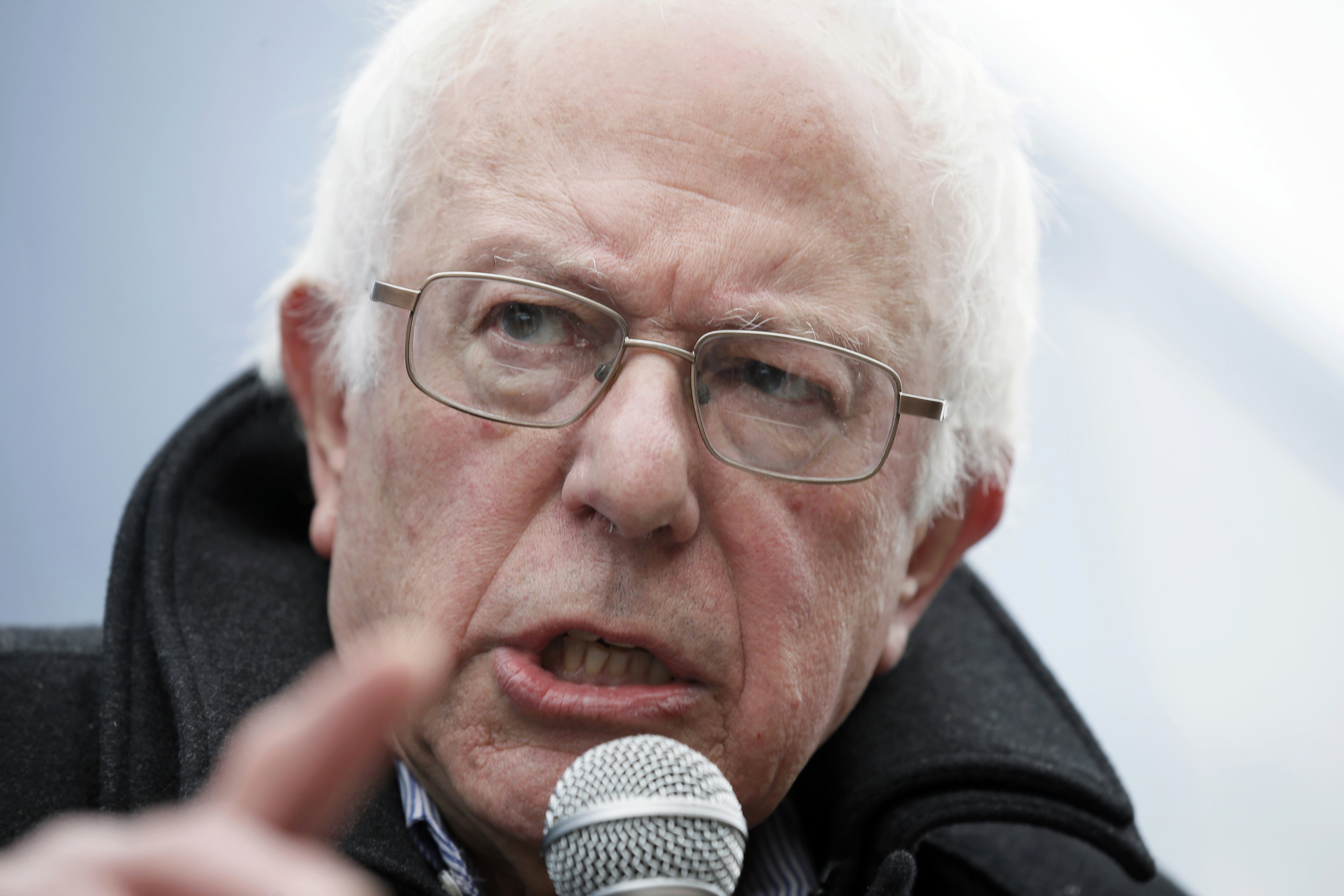On Monday night, a self-described socialist who has spent his entire career railing against the two-party system brought his first primary matchup — with the most visible and popular non-presidential Democrat over the past quarter-century — down to a couple of coin tosses. It is truly the most remarkable and unexpected event in American politics in a long time, and it could leave a lasting impression on the Democratic Party, the American left, and in particular on how those two entities interact with each other for years.
Bernie Sanders has done this against the conventional wisdom of the pundit class (he readily admits that he’d raise middle class taxes to pay for universal healthcare) and the infrastructure of an entire political party, one that has refused to take him seriously. Aside from Sens. Elizabeth Warren and Ron Wyden, an ally of Sanders on national security, there are few endorsements left that haven’t gone toward Hillary Clinton; with the first caucus in the books, Sanders’ only major nods have come from former Secretary of Labor Robert Reich and Reps. Keith Ellison and Raul Grijalva, the co-chairs of the Congressional Progressive Caucus. Clinton, by comparison, has endorsements from 38 out of the 44 sitting Democratic senators.
Clinton, whose Health Security Act in 1993 inadvertently started the Democratic Party’s long hibernation away from welfare liberalism due to its failure in Congress, recognizes this. She has spent the primary trying to tack to Sanders’ left on various issues including gun control and (misleadingly) Wall Street reform, has positioned herself as the only candidate willing to protect and continue Barack Obama’s legacy, and made a line from one of the Democratic debates — “I’m a progressive who gets things done” — a rallying cry for her whole campaign. Her choice of the word “progressive,” rather than “liberal,” gives an indication that she’d like to paint herself as “forward” rather than “left,” but the message to potential voters is implied: If you want to keep the country moving in a leftward direction — even at a snail’s pace — vote for me.
But on Monday night, rather than attack her only challenger remaining in the Democratic race, Clinton sought to reach out to Sanders supporters, saying that it was “rare that we have the opportunity to have a real contest of ideas…to really think hard about what the Democratic Party stands for and what we want the future to look like.” It doesn’t show that she’s going to pursue any of the policy goals Sanders got in the race to champion in the first place, but it does show that she’s taking Sanders, his supporters and the future of the party where she’s spent her life’s work seriously.
Sanders drawing Clinton in Iowa obviously doesn’t change the party overnight. Clinton still has the support of roughly half of the Democratic super-delegates locked up, and the current makeup of the party in Congress shows many self-described progressives yet very few who are truly sympathetic to pursuing policy goals like free college and universal healthcare. The Democratic Party has to go a long way before it becomes a party that someone with the politics of Seattle’s socialist councilwoman Kshama Sawant could feel at home in.
But even before Iowa, the Sanders campaign had already started making an impact. In down-ticket races, congressional candidates like populist Tim Canova and anti-corruption crusader Zephyr Teachout represent a new breed of Democratic politician more sympathetic to Bernie Sanders than Bill Clinton and maybe even Barack Obama. Elizabeth Warren might be the most high-profile endorsement either candidate could want right now. And in August, the Democratic Party made a $15 national minimum wage a part of its platform.
These are all people and positions that have been slammed by centrists and Third Way Democrats as being just as big of an obstacle to the way they’d like to govern as ultraconservative Republicans, and maybe even more of a nuisance. Now, after taking Clinton the distance in Iowa and with a strong shot to win in New Hampshire, this movement has proven that it is legitimate.
Still, we won’t know what Monday night truly meant until we start to see the many Sanders staffers, volunteers and supporters who are working in politics for the first time make their own forays in government and elected office. And even then, it’s impossible to predict future political trends and how committed to the same principles the Sanders coalition will be 10, 15 or 20 years down the line. We do know one thing for certain, however: Sanders’ Iowa showing indicates that something is changing in American politics. And for liberals and socialists alike who are looking for a movement where “the government belongs to all of us” (as Sanders said on Monday night), this couldn’t be better news.

